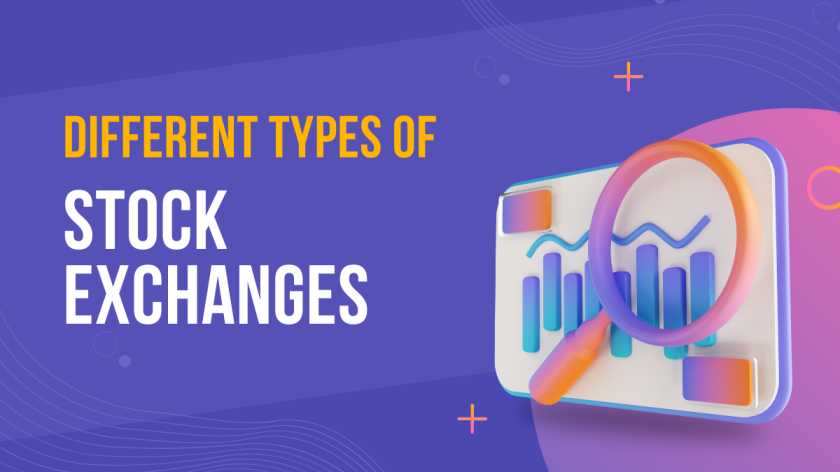Stock exchanges are pivotal institutions in the financial ecosystem, facilitating the buying and selling of securities, ensuring market efficiency, and providing a platform for price discovery. In this comprehensive article, we will delve into the types of stock exchange, and the essential functions of stock exchange, and provide a clear stock exchange definition. Additionally, we will explore what is stock exchange in detail to offer a complete understanding of its significance in the financial world.
What is a Stock Exchange?
A stock exchange is a regulated marketplace where securities such as stocks, bonds, and derivatives are bought and sold. It acts as a mediator between buyers and sellers, ensuring transparency, liquidity, and fairness in trading activities.
Stock Exchange Definition
A stock exchange is a centralised platform that facilitates the issuance, buying, and selling of securities under a set of regulated rules and procedures. It plays a critical role in capital formation, providing companies with access to capital and investors with investment opportunities.
Types of Stock Exchange
Understanding the types of stock exchange is fundamental for anyone involved in finance or investment. Stock exchanges can be broadly classified into several categories based on their structure, the types of securities traded, and their geographical focus.
-
New York Stock Exchange (NYSE)
Located in the heart of New York City, the New York Stock Exchange (NYSE) is the largest stock exchange globally by market capitalisation. It is renowned for listing many of the world’s largest and most influential companies, such as Apple, Microsoft, and Johnson & Johnson. The NYSE operates through a hybrid market system, combining electronic trading with traditional floor trading, which provides high liquidity and stability. It plays a crucial role in the global financial system, offering a platform for companies to raise capital and for investors to trade shares.
-
NASDAQ
Also situated in New York City, NASDAQ stands out for its fully electronic trading system, which facilitates fast and efficient trading. Unlike the NYSE, NASDAQ does not have a physical trading floor. It is particularly known for listing technology and growth-oriented companies, including giants like Alphabet (Google), Amazon, and Facebook. This focus makes NASDAQ a critical exchange for tech stocks and innovation-driven businesses. Its electronic nature and association with high-tech firms have cemented NASDAQ’s reputation as a forward-thinking exchange.
-
London Stock Exchange (LSE)
The London Stock Exchange (LSE) is one of the oldest stock exchanges in the world, with a history dating back to 1698. Located in London, it serves as a major hub for international equities, attracting companies and investors from around the globe. The LSE lists a diverse range of companies, including many large multinational corporations and emerging market firms. Its international focus and comprehensive listing services make it a pivotal player in global finance, facilitating capital flow and investment across borders.
-
Tokyo Stock Exchange (TSE)
The Tokyo Stock Exchange (TSE) is Japan’s largest stock exchange and one of the biggest in Asia. Based in Tokyo, it lists major Japanese corporations such as Toyota, Sony, and Mitsubishi. The TSE is integral to the Japanese economy, providing a platform for companies to access capital and for investors to trade a variety of financial instruments. Its significant size and the presence of multinational companies underscore its importance in the Asian financial landscape and its influence on global markets.
-
Shanghai Stock Exchange (SSE)
Located in Shanghai, the Shanghai Stock Exchange (SSE) is one of the largest stock exchanges in the world by market capitalisation. It plays a significant role in the Chinese economy and lists a wide array of companies, from state-owned enterprises to private-sector firms. The SSE is central to China’s financial market, offering a venue for fundraising and investment. Its rapid growth and substantial market presence reflect China’s expanding economic influence and the increasing integration of its financial markets with the global economy.
-
Over-the-Counter (OTC)
OTC markets are decentralised markets where securities are traded directly between parties without a centralised exchange. OTC markets are often used for trading securities that are not listed on major stock exchanges. They provide flexibility and allow for the trading of a wide range of financial instruments, including stocks, bonds, and derivatives.
Functions of Stock Exchange
The functions of stock exchange are vital to the functioning of the financial markets and the economy as a whole. Here are some of the key functions:
-
Facilitating Capital Formation
Stock exchanges facilitate capital formation by providing a platform for companies to raise funds from investors. Through the issuance of stocks and bonds, companies can obtain the capital needed for growth and expansion.
-
Providing Liquidity
Stock exchanges provide liquidity to investors by facilitating the buying and selling of securities. This liquidity allows investors to convert their investments into cash quickly and easily.
-
Ensuring Price Discovery
Stock exchanges ensure price discovery by determining the fair value of securities based on supply and demand. This process helps in setting accurate prices for securities, reflecting their true market value.
-
Promoting Investment
By providing a regulated and transparent marketplace, stock exchanges promote investment by offering investors a safe and efficient platform to buy and sell securities.
-
Enhancing Market Efficiency
Stock exchanges enhance market efficiency by ensuring that information is quickly and accurately disseminated to all market participants. This efficiency helps in the fair and orderly trading of securities.
-
Regulating the Market
Stock exchanges regulate the market by enforcing rules and regulations to ensure fair trading practices, protect investors, and maintain market integrity.
-
Providing Investment Opportunities
Stock exchanges provide a wide range of investment opportunities for investors, including stocks, bonds, commodities, and derivatives. This diversity allows investors to diversify their portfolios and manage risk effectively.
Conclusion
Stock exchanges play a pivotal role in the global economy, facilitating capital formation, providing liquidity, ensuring price discovery, and promoting investment. Understanding the types of stock exchange and their functions is crucial for anyone involved in finance, investing, or business. Whether you are a student or a seasoned investor, a thorough knowledge of what is stock exchange, the various types of stock exchange, the stock exchange definition, and the functions of stock exchange will equip you with the insights needed to navigate the financial markets effectively.
If you are looking to enhance your knowledge and skills in investment banking and financial markets, consider enrolling in the Certified Investment Banking Operations Professional (CIBOP) program. This investment banking course offers comprehensive training in investment banking operations, equipping you with the expertise needed to excel in your career. Whether you are preparing for a role in investment banking or seeking to deepen your understanding of the financial markets, Imarticus Learning provides the resources and support you need to succeed.


